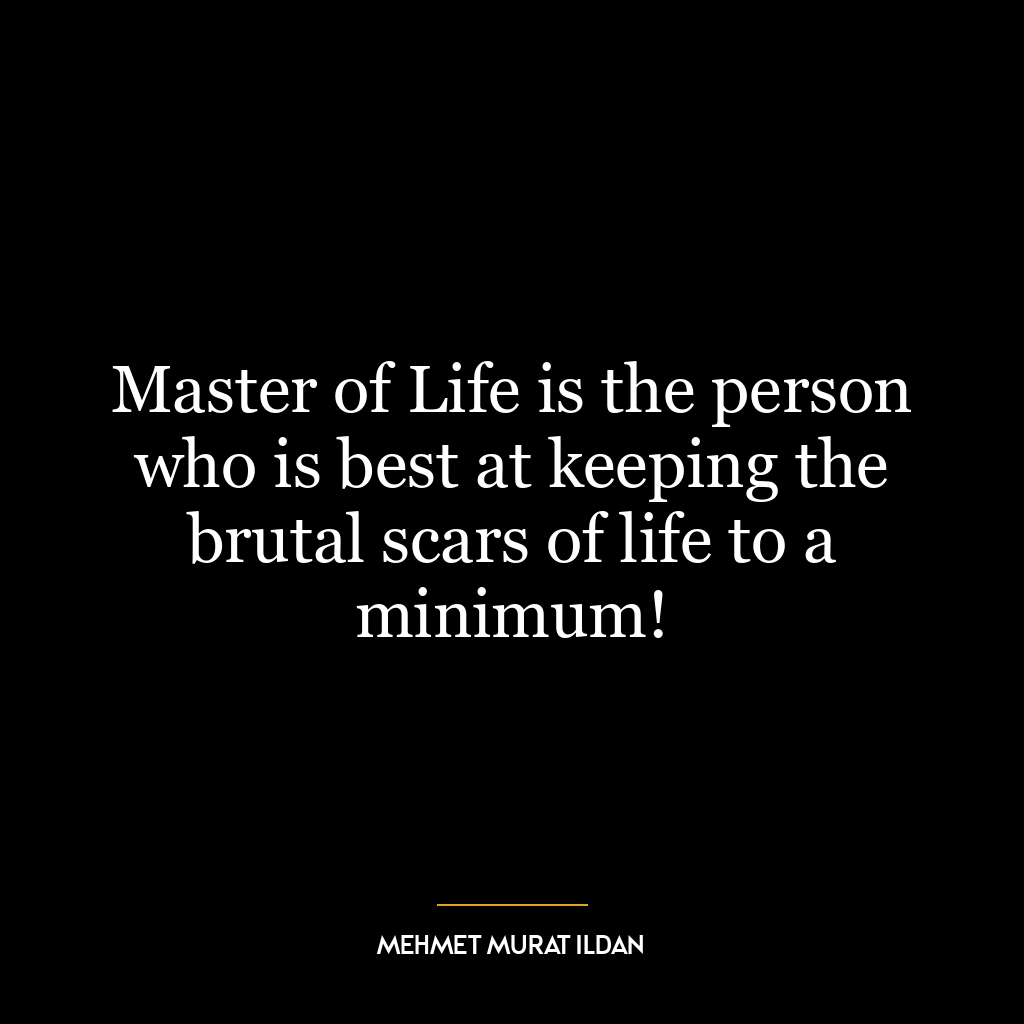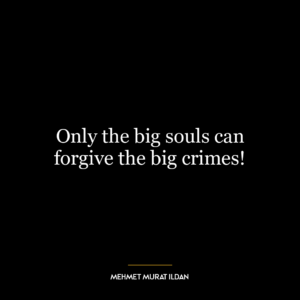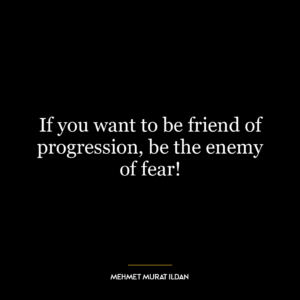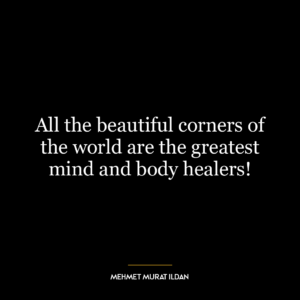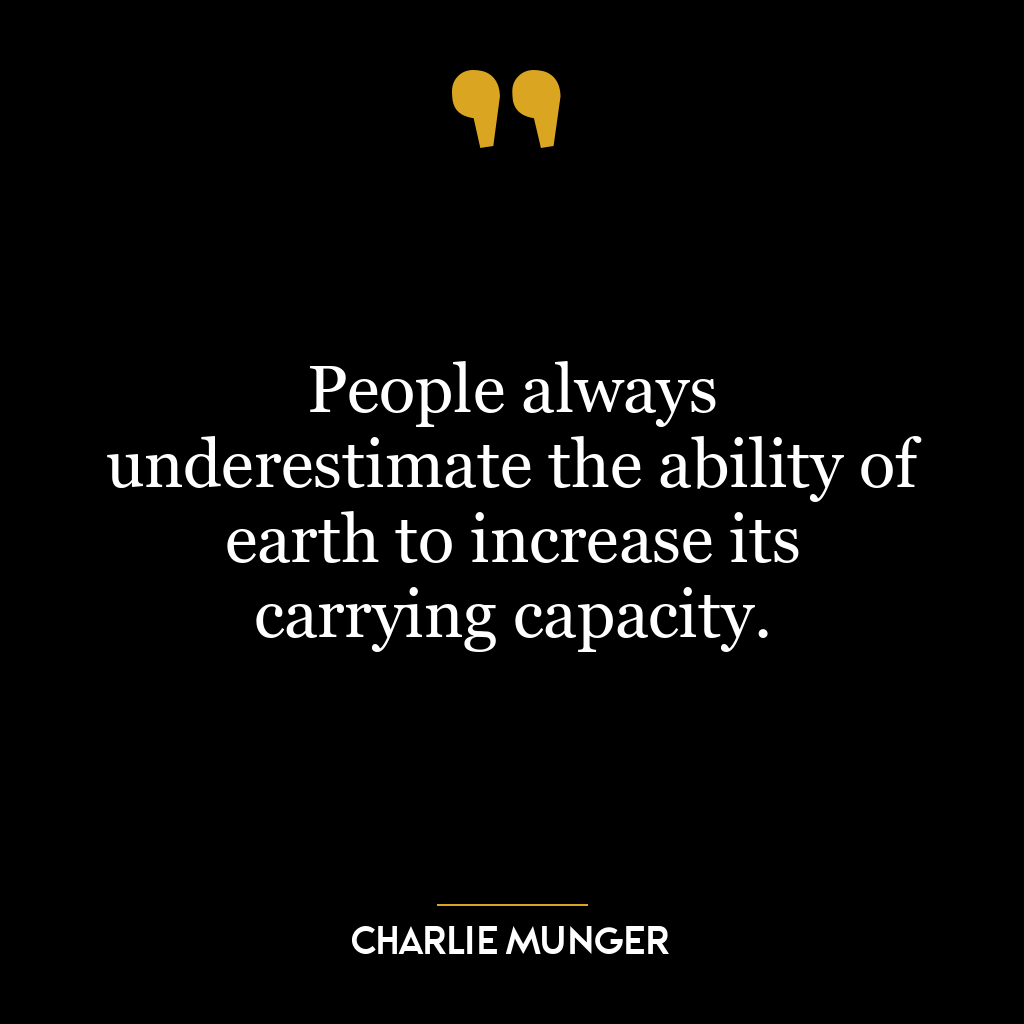Master of Life is the person who is best at keeping the brutal scars of life to a minimum!
This quote emphasizes the idea that mastery over one’s life is not necessarily about avoiding hardships or painful experiences, but rather about minimizing their lasting negative impacts. The “brutal scars of life” refers to the profound emotional and psychological wounds that can be inflicted by various life events, such as loss, failure, trauma or disappointment. These are inevitable aspects of human existence and cannot be completely avoided.
However, according to this quote, true mastery over life involves developing the resilience and coping mechanisms needed to heal from these wounds effectively. This means learning how to process negative emotions in a healthy way, gaining wisdom from our experiences instead of letting them embitter us or shatter our self-esteem, and refusing to let past pain dictate our future choices and happiness.
In today’s world where mental health issues are prevalent due to various stressors like financial instability, social pressures or global crises such as pandemics; this idea is highly relevant. It reminds us that we have control over how we react to adversity. By focusing on personal growth through therapy, mindfulness practices or other forms of self-improvement; we can learn how to bounce back stronger after setbacks instead of letting them leave lasting scars.
This concept also aligns with current trends in positive psychology which emphasize building resilience as a key aspect of mental health. Furthermore it resonates with the teachings found in many spiritual traditions which view suffering as an opportunity for growth rather than a punishment.
In terms of personal development this could involve cultivating emotional intelligence skills such as empathy (to understand others’ perspectives), self-awareness (to recognize our own emotions) and emotion regulation (to manage our reactions). It could also mean seeking help when necessary whether through professional counseling services or supportive relationships.
Finally it might involve adopting a growth mindset which views challenges not as threats but opportunities for learning. This perspective encourages us not only survive life’s trials but thrive despite them – thus keeping those “brutal scars” to a minimum.

